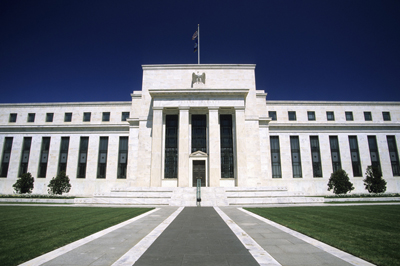House Approves Brady Legislation: National Commission to Revamp Federal Reserve
Given its recent 100th birthday and the experience of the recent financial crisis, is there any more appropriate time to examine the role of the Federal Reserve in American life than now?
 Last week the U.S. House of Representatives approved legislation reforming the nation’s central bank, including a new bipartisan national commission I have championed. The Centennial Monetary Commission establishes a bipartisan commission to evaluate the performance of the Federal Reserve over the first 100 years of its existence – specifically on the economy, inflation and financial stability – and to recommend to Congress the appropriate role of the Fed in the 21st Century.
Last week the U.S. House of Representatives approved legislation reforming the nation’s central bank, including a new bipartisan national commission I have championed. The Centennial Monetary Commission establishes a bipartisan commission to evaluate the performance of the Federal Reserve over the first 100 years of its existence – specifically on the economy, inflation and financial stability – and to recommend to Congress the appropriate role of the Fed in the 21st Century.
Given its recent 100th birthday and the experience of the recent financial crisis, is there any more appropriate time to examine the role of the Federal Reserve in American life than now? Getting the role of the Fed right in the 21st Century is critical to America’s economic growth and protecting the purchasing power of the dollar, which has a big impact on working families and retirees.
America needs a thoughtful and constructive evaluation of the Fed’s performance, along with recommendations to Congress for the Fed’s role for the long-term. I believe a sound and stable dollar is the best foundation for economic growth, but others have different ideas. This bipartisan commission creates the first opportunity in decades for a high-profile, open discussion on the rules, mandates and role of the Federal Reserve in a changing world. In the end, getting the role of the Fed right is Congress’s constitutional role. This evaluation is long overdue.
Background on the Bill: The Centennial Monetary Commission is included in the Federal Oversight Reform and Modernization Act (the FORM Act) which protects the Fed’s independence to chart whatever monetary policy course it deems appropriate but requires it to give the American people a greater accounting of its actions. The FORM Act helps consumers and investors make better decisions in the present and form sounder expectations about the future. The legislation directs the Federal Reserve to transparently communicate its monetary policy decisions to the American people. The FORM Act requires the Fed to generate a monetary policy strategy of its own choosing in order to provide added transparency about the factors leading to its monetary policy decisions.








